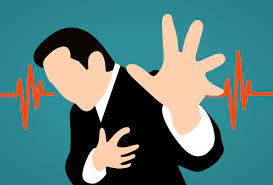Heart disease is a term used to describe a variety of conditions that affect the heart, including coronary artery disease, heart failure, and arrhythmias. It is the leading cause of death in many countries, including the United States. In this article, we will explore what heart disease is, what causes it, and how it can be prevented and treated.
What is heart disease?
Heart disease refers to a group of conditions that affect the heart and blood vessels. The most common form of heart disease is coronary artery disease, which occurs when the arteries that supply blood to the heart become narrow or blocked. This can lead to chest pain, shortness of breath, and heart attacks.
Other forms of heart disease include heart failure, which occurs when the heart cannot pump enough blood to meet the body’s needs, and arrhythmias, which are abnormal heart rhythms. Some forms of heart disease are present at birth (congenital heart disease), while others develop over time due to lifestyle choices, genetics, or other factors.
What causes heart disease?
There are many factors that can contribute to the development of heart disease. Some of the most common risk factors include:
High blood pressure: High blood pressure can damage the arteries and increase the risk of heart disease.
High cholesterol: High levels of cholesterol in the blood can lead to the buildup of plaque in the arteries, which can narrow or block blood flow to the heart.
Smoking: Smoking can damage the blood vessels and increase the risk of heart disease.
Diabetes: Diabetes can increase the risk of heart disease by damaging the blood vessels and increasing the risk of high blood pressure and high cholesterol.
Obesity: Being overweight or obese can increase the risk of heart disease by putting extra strain on the heart and blood vessels.
Family history: If members of your family have had heart disease, you may be at increased risk.
Age: The risk of heart disease increases with age.
How can heart disease be prevented?
There are many steps that can be taken to prevent heart disease. Some of the most effective strategies include:
Eating a healthy diet: A diet rich in fruits, vegetables, whole grains, and lean protein can help reduce the risk of heart disease.
Exercising regularly: Regular exercise can help maintain a healthy weight, reduce blood pressure and cholesterol, and improve overall cardiovascular health.
Not smoking: Quitting smoking or never starting in the first place can greatly reduce the risk of heart disease.
Managing chronic conditions: Managing conditions like high blood pressure, high cholesterol, and diabetes can help reduce the risk of heart disease.
Maintaining a healthy weight: Being overweight or obese can increase the risk of heart disease, so maintaining a healthy weight is important.
Managing stress: Chronic stress can increase the risk of heart disease, so finding ways to manage stress, such as meditation, yoga, or therapy, can be helpful.
How is heart disease treated?
The treatment of heart disease depends on the specific condition and the severity of the symptoms. In general, treatment may include lifestyle changes, medications, procedures, or surgery.
Lifestyle changes: Lifestyle changes, such as eating a healthy diet, exercising regularly, quitting smoking, and managing stress, can help reduce the risk of heart disease and improve overall cardiovascular health.
Medications: There are many medications that can be used to treat heart disease, including medications to lower blood pressure, lower cholesterol, and prevent blood clots.
Procedures: Procedures, such as angioplasty and stenting, can be used to open blocked or narrowed arteries in the heart.
Surgery: In some cases, surgery may be necessary to treat heart disease. For example, coronary artery bypass surgery may be needed if the arteries in the heart are severely blocked.
Conclusion
Heart disease is a common and serious condition that affects.

